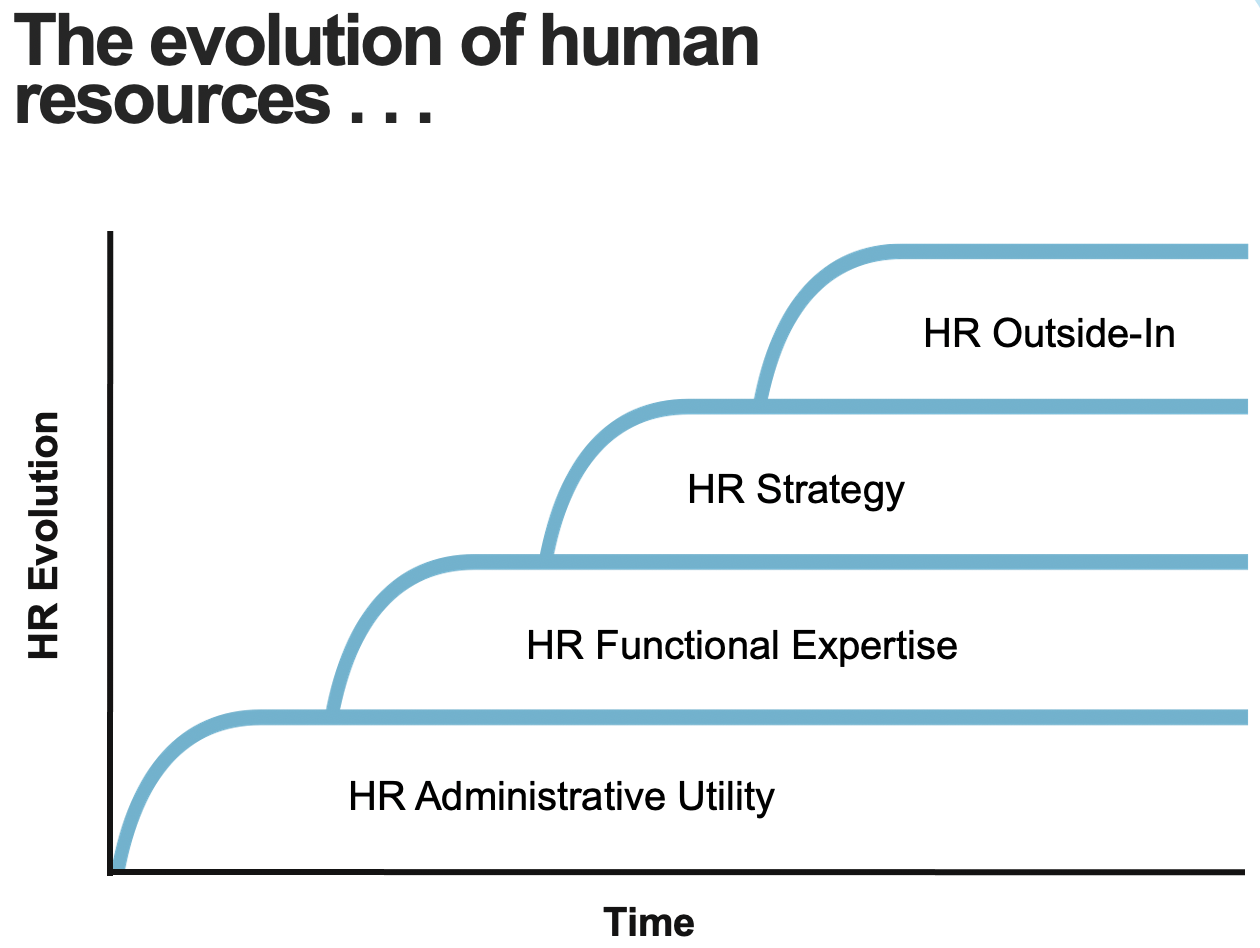HR as a Driver of Relevance and Value
Key Takeaways:
- HR professionals can have significant impact in driving relevance and creating value through their work with leadership, talent and approach to organization.
- Taking an outside-in HR approach is vital to deliver relevance and value to internal and external stakeholders.
- Eight key questions can help HR professionals take an outside-in HR approach.

HR as a Driver of Relevance and Value

Related Insights
Relevance is value. Earlier this year, Tesla surged past Volkswagen to become the world’s second most valuable car company – only sixteen years after its formation. It’s valuation now exceeds that of Ford and General Motors combined. The reason? Tesla’s products are more relevant than competitor offerings to a growing number of stakeholders all over the world. So relevant that they now shape the way we think about what a good vehicle looks like and have competitors scrambling to update their own product lines and radically shift their own approach to market.
Value is created when companies build products and services that are relevant to their stakeholders. Tremendous advantage is created when companies become so relevant that they shape the way consumers think about the categories and sectors they operate in. Think Go-Pro in the portable video space, DJI in the drone category and Apple in smart phones.
Sustaining a position as a driver of relevance isn’t easy. It requires leadership, talent and an approach to organization design that creates space for innovation, creativity and execution. These three areas are where HR professionals can have a significant impact.

Over the past 50 years or so HR has evolved (see figure 1). In most instances it began as a purely administrative function – writing contracts, allocating leave and benefits, etc. A growth in technical expertise shaped the second phase. This phase is characterized by the emergence of specialists – recruitment, reward, performance, learning and development, organization design, talent management, and so forth. The third phase embraces the idea of HR as a strategic function. It is characterized by the emergence of HR business partners (HRBPs) capable of using and adjusting the work of specialists to drive performance in the parts of the business to which they are assigned. The fourth phase of evolution is about driving relevance. This phase is where most advantage can be created. It requires professionals who are constantly scanning the external environment for trends that can shape external stakeholder behavior. HR professionals in phase 4 take an active role in HR strategy development. They bring meaningful data and insight back inside and use it to inform and adjust their approach to talent, leadership and organization design on an ongoing basis. HR departments that create value excel at this. Instead of positioning HR as a reflection in the ‘mirror’ of strategy, they look through the ‘window’ of strategy to the external environment to gather data which they turn into insights and use to shape the future business strategy.
The evolution of HR hasn’t removed the need to execute administrative work flawlessly, have centers of expertise create bespoke solutions to specific challenges, or have HR business partners align their efforts with the strategy of the firm. However, there is an additional, even greater need for HR to acquire data from outside and translate it into insights that drive the HR agenda inside and result in increased stakeholder relevance.
Looking outside to understand what the business implications will be of Social, Technological, Economic, Political, Environmental and Demographic trends is imperative in the creation of value. Failure to do so will inevitably lead to the firm becoming less relevant as the external environment moves away from the offerings of the past and towards offerings that will meet the needs of the future.
HR professionals, leaders and departments that have the mindset and skillset to extract talent, leadership and organizational insight from accurate observations of the external environment are incredibly well positioned to create advantage and value. These are the professionals capable of driving relevance.
Some key questions that HR professionals need to ask are:
- What trends are we seeing in the external environment?
- What potential implications do these trends have on our industry and our business?
- Given these trends, what is the gap between what our business is delivering now and the future requirements of our customers?
- What skills and capabilities will we need to build to delight our customers, investors and other stakeholders in the future?
- Where are these skills and competencies most readily available?
- How should the organization be structured to pivot effectively?
- What is the right culture required to facilitate the flexibility and agility required to meet the ever-changing demands on the business?
- What are the leadership requirements to ensure short-term success and long-term sustainability?
Through our empirical research, The RBL Group has identified key capabilities that will prepare HR professionals to not only help the organization respond to these ever changing demands, but also to anticipate these shifts and shape the organization to be able to flex, bend and pivot in ways that continue to delight customers and create meaning and belonging for their employees.
Organization leaders and HR professionals that are results focused create value when they take an outside-in perspective and develop talent, leadership and organizations capable of building products and services that are relevant to customers.
For more than twenty years The RBL Group has been helping HR professionals develop the skills and competencies required to drive business performance. Today, the Dave Ulrich HR Academy is the most comprehensive learning suite available for HR professionals. The content is designed to help HR professionals contribute to the creation of value as HR business partners. Contact us to get started.


